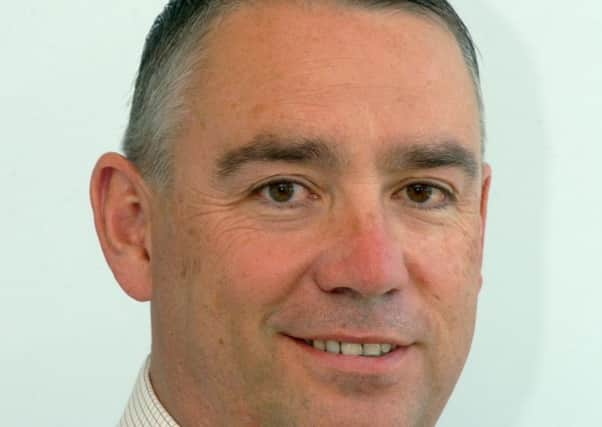Millions of pounds still need to reach farmers


Around £5m in hardship funds have been shared between 300-plus farmers to ease the cash crisis caused by the failure, which comes at a time of successive years of low farmgate prices.
The leader of the delivery programme, Rural Payments Agency chief executive Mark Grimshaw, said he accepts that a small group of senior managers, including himself, are collectively to blame for the fiasco, but vowed that the problems were now behind them.
Advertisement
Hide AdAdvertisement
Hide AdHe promised that at least 90 per cent of farmers would be paid when the next payments round starts in December.
Giving evidence to the Environment, Food and Rural Affairs Select Committee, Mr Grimshaw, said he wanted to repeat the “zenith” of performance achieved in 2014 when 95 per cent of farmers were paid on the first banking day of December.
“My ambition and one of the reasons that we built this system in the way that we did was to get back to that position as soon as possible,” he said. “And I see no reason why we should not be back in the high 90s during December. I think that’s achievable.”
Committee chairman, Neil Parish MP, demanded to know when the remainder of farmers in this round will be paid, saying: “As far as those individual farmers are concerned they are still desperate to have the money. It is a very difficult economic situation out there.”
Advertisement
Hide AdAdvertisement
Hide AdMr Grimshaw said: “My expectation is that we will be in a range by the end of March of between 92 and 95 per cent paid.”
MPs questioned Mr Grimshaw on his role in the collapse of the online-only approach to payment applications last March. Their enquiries followed a highly-critical report by another government watchdog about the mismanagement of the Common Agricultural Policy Delivery Programme - which Mr Grimshaw became the fourth person to lead - as a ‘senior responsibility officer’ - when he was appointed last spring.
The Public Accounts Committee reported that “childish” civil servants earning £140,000 a year had created a “dysfunctional and inappropriate” culture within the programme.
And while Mr Grimshaw accused the PAC of “sensationalism”, he admitted to tensions between the RPA, the Defra-led CAP Delivery Programme and Government Digital Services. On who was to blame, he said: “I’m not sure it actually comes down to an individual person. There were lots of decisions taken over the period of probably 18 months that may have taken the development into an area that wasn’t as productive as it could have been.
Advertisement
Hide AdAdvertisement
Hide Ad“One of my regrets was not being able to get the message through to the SROs of the programme around the requirements that we actually had.”
He said there were difficulties around IT delivery and design, and HR, and prior to last March it was “incredibly difficult” to influence the programme, citing the Government’s ‘digital by default’ agenda as a factor.